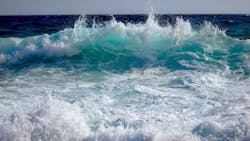EPA & Army Announce Intent to Revise Definition of Waters of The United States
On June 9, 2021, EPA and the Department of the Army announced their intention to initiate a new rulemaking process that restores the protections in place prior to the 2015 Waters of the United States (WOTUS) implementation.
According to EPA, the new rule will establish a “durable definition” of Waters of the U.S., revising the Trump-era rule.
After reviewing the Navigable Waters Protection Rule, the agencies have determined that the rule is significantly reducing clean water protections, especially in arid climates such as New Mexico and Arizona. According to the EPA press release, the agencies are also aware of 333 projects that would have required Section 404 permitting prior to the Navigable Waters Protection Rule but no longer do.
According to The Hill, The Trump-era rule limited which waters receive protections under the Clean Water Act (CWA), excluding certain types of wetlands and streams, including streams that only flow when it rains or when snow melts. This replaced an Obama-era rule that argued that the bodies of water must be protected to stop pollution from reaching larger sources, including those used for drinking water.
“After reviewing the Navigable Waters Protection Rule as directed by President Biden, the EPA and Department of the Army have determined that this rule is leading to significant environmental degradation,” said EPA Administrator Michael S. Regan in a EPA press release. “We are committed to establishing a durable definition of ‘waters of the U.S.’ based on Supreme Court precedent and drawing from the lessons learned from the current and previous regulations, as well as input from a wide array of stakeholders, so we can better protect our nation’s waters, foster economic growth, and support thriving communities.”
According to EPA, the agencies’ new regulatory effort will bear in mind:
- Protecting water resources and communities consistent with the CWA;
- The latest science and the effects of climate change on our waters;
- Emphasizing a rule with a practical implementation approach for state and Tribal partners;
- And reflecting the experience of and input received from landowners, the agricultural community that fuels and feeds the world, states, Tribes, local governments, community organizations, environmental groups, and disadvantaged communities with environmental justice concerns.
During a recent House hearing, Regan made it clear that the agencies would not return verbatim to the Obama-era regulation, saying that both the Obama and Trump-era rules “did not necessarily listen to the will of the people,” reported The Hill.
More details of the agencies’ plans, including opportunity for public participation, will occur in the future.
